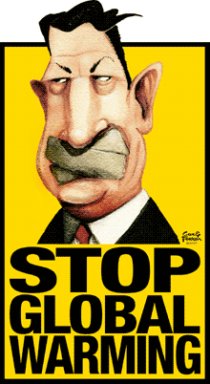(Entry edited at 17:31hrs to remove names of ACI manager and offending ACI.)
Well. First, kudos to AOL. Yes, I did just say that. As you may know by now, I used to be a Community Leader (a HOST) on AOL before I got removed for daring to speak my mind. I dared to say that removing the HOSTs would result in lawlessness in the Community and that it would be a watershed event in the end of Communities on AOL. History has proved me right on both counts.
The ACI at the time lied when she said I could re-apply in six month's time. I say she lied because 1) once you're removed as a HOST, you're done, and 2) she KNEW the HOST program was going away. And our "working relationship" was supposed to be defined (in the words of an ACI manager) by "trust" and "mutual understanding." Trust her when she lied? Um...I missed something.
But, I digress. Kudos to them for finally putting more emotions in the "feeling" section. I went with "confused" this time because, frankly, I'm really really confused. Seriously confused, in fact.
But now we need to take a step back. Bill Keller of the NYT said in December 2007: "…we are agnostic as to where a story may lead; we do not go into a story with an agenda or a preconceived notion. We do not manipulate or hide facts to advance an agenda. We strive to preserve our independence from political and economic interests, including our own advertisers. We do not work in the service of a party, or an industry, or even a country. When there are competing views of a situation, we aim to reflect them as clearly and fairly as we can."
OK. That's a direct quote. They don't go into a story with an agenda or preconceived notion. Got it. You don't manipulate or hide facts to advance an agenda. Got that, too. You strive to preserve your independence from poltical and economic interests. I got all that claptrap. And my favourite line, which they continue to disprove in their biased reporting: They aim to reflect competing views as cleary and as fairly as they can. (Yes, I did nearly choke on that last.) One question, Mr. Keller: Do you take me for being as completely stupid as my ACI took me to be?
Now we come to what John Fund, an Op-Ed writer for the Wall Street Journal Online wrote when talking about BHO's numerous gaffes. "That hardly disqualifies Mr. Obama from being president. But you can bet that if Hillary Clinton had done the same thing it would have been the focus of much more attention, especially after her Bosnia sniper-fire fib. That's because gaffes are often blown up or downplayed based on whether or not they further a story line the media has attached to a politician." (emphasis added) As Rush Limbaugh would say "STOP THE PRESSES!!!" (The entire article is here: http://online.wsj.com/article_print/SB121210923476431299.html )
I need to repeat that "...gaffes are often blown up or downplayed based on whether or not they further a story line the media has attached to a politician." Um...Mr. Fund? According to Mr. Keller of the NYT, the media doesn't do that.
Here we have two different writers, writing for two different publications. We have the liberal NYT (as demonstrated by that study I referenced in an earlier posting) and then we have the somewhat more mainstream WSJ Online.
Mr. Fund is telling us that gaffes get blown up or downplayed "...based on whether or not they further a story line the media has attached to a politician." Mr. Keller says they don't do that.
So which is it? This isn't wave-particle duality here, this is a straight forward question. Does the media in fact ramp-up or downplay certain parts of a story?
And if so, why do they hide it? Or try to hide it? Oh, how I'm reminded of that Cox and Forkum cartoon from 2006:
Oh. One more thing. Another cartoon from Cox and Forkum:



No comments:
Post a Comment